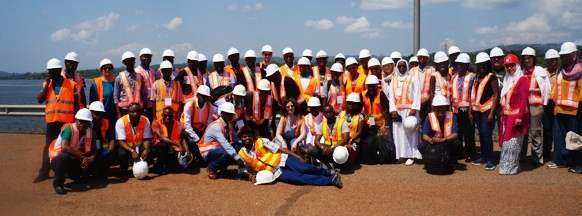At present, across Africa, like in many other regions of the world, the knowledge and understanding of IWL amongst key experts is extremely limited. At the transboundary level, this can often give rise to misunderstandings and tensions between state representatives as they advocate different interpretations of the legal rights and obligations that pertain to transboundary river, lake and aquifer systems; or misrepresent the function of IWL in fostering cooperation between states.
“Including negotiation and SDGs (SDG 6) as part of the training was well received by the participants. There is a growing demand and request to devote more time on negotiations; especially interest-based negotiations have a big role to play in improving the understanding of benefit sharing across countries. SDGs are a key component of water management, especially in implementing the 2030 agenda,” says Kenge James Gunya, who is a Knowledge Management Officer with GWP and one of the organisers.
The training was organised by GWP, together with the African Network of Basin Organisations (ANBO), the Intergovernmental Authority on Development (IGAD), Makerere University and the Centre for Water Law, Policy & Science, University of Dundee.
The participants came from 28 countries across the African continent, with experts that ranged from mid- to high-level practitioners and professionals who have a role in negotiating, drafting or reforming treaties and legislation (regulation, control), planning, decision-making on transboundary water. They represented institutions such as government ministries, regional integration organisations, universities, civil society organisations, water companies and consultancies, and donor agencies.
A detailed report of the event, including feedback from the participants, is now available to download here.
The training will continue next year: “Another 40-55 people will be trained next year and the 5-year training programme aims to build the capacities of 250 personnel in Africa to manage transboundary water resources efficiently, improve cooperation among countries and finally achieve water security,” says Kenge James Gunya.

